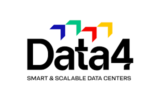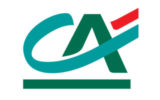We Do Green IT 2023 & CSRD: a happy coincidence
For the second year in a row, APL Data Center was a sponsor of the event We Do Green IT, organized by Alliance Green IT (AGIT). The event was an opportunity to examine the maturity of companies when it comes to measuring and reducing the environmental footprint of their digital technology. Coincidentally, the event was held just three days after the transposition into French law of the European Union’s Corporate Sustainability Reporting Directive (CSRD), which will bring about changes to companies’ reporting obligations on non-financial matters.
Socially responsible digital technology: the importance of reliable measurements
During the round table discussion entitled “Are environmental studies reliable?” in which APL participated during the We Do Green IT 2023 event, all the speakers agreed that virtually all organizations are now thinking about what initiatives they should implement in order to be socially responsible with their digital technology. And there’s no shortage of literature, methodologies, and standards on the subject. For example:
- The life-cycle analysis (LCA) method for a company’s products and services, based on the ISO 14040 and 14044 standards.
- Numerous references and guides for measuring and limiting the environmental and social impacts of digital technology have been developed in France, including the GR491 guide from the Institut du Numérique Responsable, the Sustainable IT (or Numérique Responsable) label, the Digital Services Eco-Design General Reference (RGESN) from DINUM, and the General Reference for Improving Accessibility (RGAA).
However, while these may be useful, they are not necessarily easy to use without the proper tools or support. At the same time, proprietary tools are being developed by companies themselves as they launch projects to reduce the environmental footprints of their digital operations.
Given all these different methodologies and tools, it is difficult to measure and compare the environmental footprints of digital equipment and services used by companies and consumers. However, that should not hinder action. The important thing is to continue improving between each measurement. More standardized references can always be adopted at a later stage!
In any case, the reliability of data remains the most crucial element:. The environmental footprint of digital technology cannot be measured if the input assessments and data are inaccurate. Some of the most important aspects to consider include:
- The sourcing of data. Each data point used to measure the level of digital responsibility must be explicable: data from manufacturers or service providers, data collected from equipment, etc.
- The specific scope of studies. Similarly, measurements taken must be put into the context of the scope within which they are being used, and exceptions must be clearly indicated.
- Critical review. A critical review lends credibility to measurements and their results, especially if they are to be published.
- An iterative approach. In order to guarantee the reliability and accuracy of results, regular measurements help fine-tune results.
CSR reporting: the CSRD and its knock-on effects
As luck would have it, the annual AGIT event was held just a few days after the transposition into French law of the European Union’s Corporate Sustainability Reporting Directive (CSRD), making France one of the first EU member states to tackle the issue. This is important because the CSRD will bring about major changes to the Declaration of Extra-Financial Performance (DPEF) in France and will incorporate the obligation on companies to verify the reliability of the information they provide.
More specifically, starting January 1, 2025, all large companies, publicly traded SMEs, and non-EU companies that generate revenues of over €150 million within the European Union will have to comply with the CSRD. In reality, many other companies will be impacted by the recent transposition of the directive into French law. Indeed, to uphold their sustainability commitments, and notably their digital responsibility commitments, companies subject to the CSRD will have to ask their service providers and suppliers to provide them with information on their own commitments. Before long, Tier 1, 2, and even 3 providers will become, de facto, subject to the obligations of the CSRD.
In other words, almost all companies must immediately begin ensuring that their data on digital responsibility is reliable, and they must rely on recognized methods and tools, even if these are not yet standardized, so that they can attest to the quality of their results. Otherwise, they will quickly find themselves excluded from bidding on contracts from major companies.
We Do Green IT 2023
Video of the round table discussion entitled “Are environmental studies reliable?” in which APL participated
Watch the replay (in French)






















